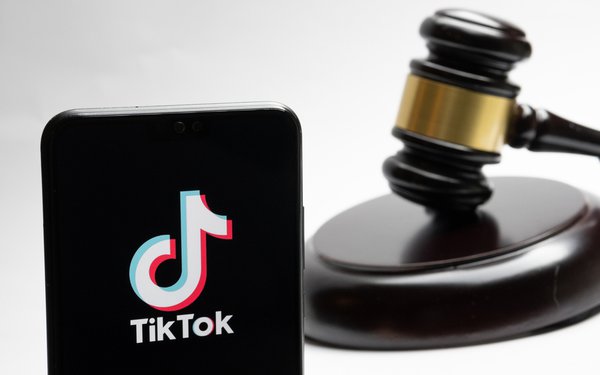
TikTok is urging a federal judge to dismiss a
sprawling lawsuit alleging that it violates young children's privacy by collecting their data.
In papers filed this week with U.S. District Court Judge George Wu in the Central
District of California, TikTok argues that the plaintiffs -- all children under the age of 13 -- "had no reasonable expectation of privacy" in the data TikTok collected because the company told
platform users how it handles data.
"Defendants’ privacy policies expressly disclose that they collect all the information plaintiffs now claim was private, for the
precise uses plaintiffs challenge," TikTok writes.
The company adds that all but one of the children named as plaintiffs misrepresented their ages in order to bypass a
“Kids Mode” setting and create an account with features designed for users who are at least 13.
advertisement
advertisement
TikTok's papers come in a lawsuit dating to last August, when
families of three young TikTok users claimed the company violated their privacy by allegedly collecting their personal information. Other families followed with separate class-action complaints, and
the cases were eventually combined in front of Wu.
The first of the lawsuits on behalf of children came around one week after the Department of Justice charged TikTok with violating the federal Children's Online Privacy Protection
Act. That law prohibits websites and apps from knowingly collecting personal data of users 12 and under, without parental consent. That matter is currently pending before Wu.
The consolidated class-action complaint on behalf of children, filed with Wu in July, repeats many of the allegations brought by the Department of Justice. The complaint includes
claims that TikTok violated variety of state consumer protection laws and privacy standards.
"This case concerns the unlawful collection of personal information from which
TikTok is able to personally identify its users," class counsel write, adding that the company allegedly collected names, email addresses, phone numbers, profile images, messages, location data,
social network contacts and other data.
The plaintiffs also alleged that TikTok knew children were lying about their ages in order to gain full access to the platform, instead
of creating Kids Mode accounts.
TikTok argues in its new motion that the allegations, even if proven true, wouldn't show that the company violated state laws or privacy
standards.
For instance, the complaint alleges TikTok engaged in "intrusion upon seclusion," which is actionable in some states -- but only if a defendant engaged in "highly
offensive" privacy violations.
TikTok argues that the complaint's allegations, even if proven true, wouldn't show the kind of offensive privacy violation that could support the
claim.
"Many kinds of personal information identified in the complaint -- including names, email addresses, phone numbers, persistent identifiers, and IP addresses ... do not
implicate privacy interests under state law at all," the company writes.
"Collecting data of internet users is of course entirely routine commercial behavior," TikTok adds.
Wu is expected to hold a hearing in the case on November 6.